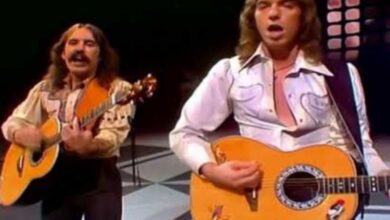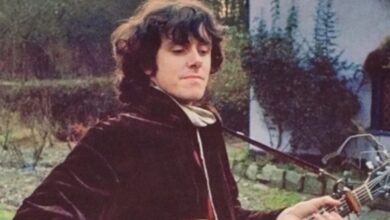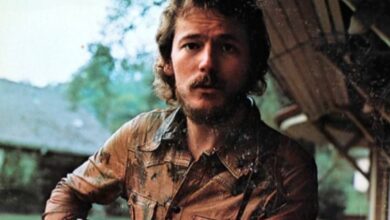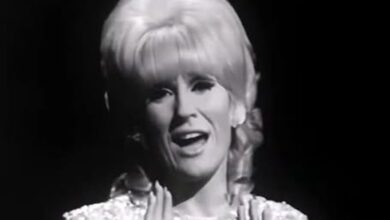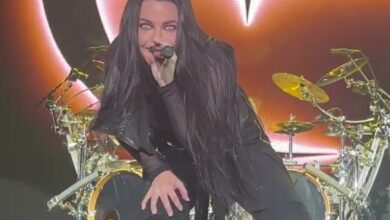Blake Shelton’s Live Rendition of “Suspicious Minds” Revives the Power and Passion of Elvis’s 1969 Classic
When Blake Shelton stepped into the spotlight and launched into “Suspicious Minds” during a live tribute concert for Elvis Presley, few expected the emotional punch it would deliver. Originally recorded by Elvis in 1969, the song marked one of his final chart-topping hits and stood as a defining moment in his late-career revival. Decades later, Shelton’s rendition didn’t aim for mimicry—instead, it reignited the raw emotion at the heart of the original while placing a distinctly personal stamp on it. Even lifelong Elvis devotees found themselves drawn in, impressed by the sincerity and soul Shelton brought to the stage.
Hailing from Ada, Oklahoma, Blake Shelton rose through the ranks of country music in the early 2000s, known for his rugged charm and emotional authenticity. Tracks like “Austin” and “The Baby” helped establish him as one of the genre’s most relatable voices. But what continues to set Shelton apart is his reverence for the greats who came before him. With a vocal style that blends classic country ease with contemporary power, Shelton has always been capable of channeling old-school spirit in a way few of his peers can.
The decision to perform “Suspicious Minds” stemmed from both admiration and intention. Shelton has long cited Elvis as one of his earliest influences, a musical North Star that helped shape his own sense of style and performance. For him, this wasn’t just a nostalgic nod—it was a heartfelt salute. Friends close to the singer say he had been waiting for the right moment to honor Elvis publicly, wanting it to be an offering of respect rather than spectacle.
The live performance stripped away unnecessary embellishments. Under moody lighting and backed by a tight band, Shelton brought grit and grace to the song. The instrumentation stayed loyal to the spirit of the original, with its haunting guitar line, pulsing rhythm, and cascading harmonies. But it was Shelton’s voice—steady, weathered, and warm—that carried the true emotional weight. He delivered each line with conviction, leaning into the heartbreak and frustration that define the song’s narrative, while making it feel urgent and new.
The response from fans was swift and intense. Social media lit up with praise, calling the performance one of Shelton’s finest. Comments like “This is the first time I’ve heard anyone do Elvis justice” and “He didn’t cover it—he honored it” flooded comment sections and fan pages. Critics who typically approach Elvis tributes with caution were quick to commend Shelton for striking the perfect balance between reverence and reinvention. It was clear: this was no ordinary cover—it was a revitalization of a classic.
More than just a fan favorite, the performance reintroduced the emotional layers of “Suspicious Minds” to a new audience. Where Elvis’s version reflected the personal turbulence of the late ’60s, Shelton’s version spoke to broader themes of doubt, vulnerability, and emotional transparency—issues that continue to resonate. The song, once again, became a mirror for the struggles people face in trusting and being trusted, giving it renewed relevance for a generation craving connection and honesty.
Including “Suspicious Minds” in his setlist was also a quiet declaration of artistic evolution. Though Shelton’s foundation is firmly in country, he has always played with genre lines—dabbling in blues, rock, and soul. Taking on a song as iconic as this wasn’t just a tribute to Elvis—it was a moment of synthesis, uniting the past with the present and inviting diverse audiences to appreciate their shared musical heritage, if only for the duration of a single performance.
For Elvis Presley’s legacy, Shelton’s performance served as a reminder that the King’s influence continues to ripple outward. Far from being frozen in time, Elvis’s catalog is still alive in reinterpretations that feel both respectful and refreshingly current. Shelton joined a rare class of modern artists—alongside names like Chris Isaak and Dwight Yoakam—who’ve successfully infused Presley’s material with their own spirit, bridging decades without diminishing the original magic.
What made Shelton’s take particularly moving was his restraint. He avoided overdoing it, never veering into mimicry or melodrama. Instead, he allowed the song’s inherent tension and soulful melody to carry the weight, stepping into the performance with humility. That level of trust in the material, combined with emotional honesty, created something more lasting than any flashy vocal run ever could.
Coming at a time when the world was slowly emerging from the isolation of the pandemic, Shelton’s “Suspicious Minds” offered more than musical nostalgia—it became a cathartic moment. Its themes of emotional barriers and distrust struck a chord in a world newly attuned to the fragility of connection. The live setting gave audiences a space to collectively feel something they hadn’t felt in a while: unfiltered release through music.
In the days and weeks that followed, footage of the performance gained momentum online, reaching millions and drawing new listeners to both Shelton’s and Elvis’s catalogs. The song began popping up in curated playlists and social media compilations, becoming a favorite among fans rediscovering—or discovering for the first time—the timeless ache and rhythm of “Suspicious Minds.” It became clear that the performance had struck a nerve that wasn’t limited to one genre or one demographic.
Though there’s been no official release of the live rendition, the performance’s resonance has sparked talk of a possible tribute album or live project featuring Shelton. Whether or not those plans come to fruition, what’s undeniable is that the moment already holds its place as one of the most talked-about performances in recent memory. It showcased how live music, when delivered with heart, can still surprise and move us deeply.
Beyond accolades and views, Shelton’s “Suspicious Minds” offered a glimpse of the artist behind the hits. It reminded fans that he’s not just a country star or a TV personality—he’s also a steward of musical tradition. In paying homage to Elvis, Shelton didn’t seek to replace or replicate—he simply added his voice to a legacy that continues to shape American music.
Blake Shelton’s performance wasn’t an attempt to wear the crown of the King—it was a salute, offered with sincerity and skill. It stood as proof that great songs, when performed with genuine emotion, can transcend time and context. By honoring Elvis in his own voice and on his own terms, Shelton did more than sing a classic—he made it live again.
